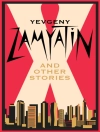In ‘The Hidden Force, ‘ Louis Couperus crafts a compelling narrative that skillfully weaves together themes of fate, tradition, and the unseen forces that govern human existence. Set against the backdrop of the Dutch colonial era in Indonesia, the novel explores the lives of the Javanese aristocracy, juxtaposing Western ideals with Eastern mysticism. Couperus employs a rich, impressionistic literary style, characterized by vivid descriptions and introspective prose, evoking the complexities of cultural identity and the inexorable pull of ancestral legacies. The layered narrative invites readers to question the nature of power and individuality, making it a profound exploration of human experience within its societal constraints. Louis Couperus, one of the foremost Dutch authors of the late 19th and early 20th centuries, drew upon his own experiences in the East Indies and his comprehensive understanding of philosophy and art to create this poignant work. His exposure to diverse cultures and ideologies deeply influenced his portrayal of the psychic tensions between the East and West. Couperus’s explorations of existential themes reflect his own life challenges and provide insight into the tumultuous social changes of his time. ‘The Hidden Force’ is not merely a novel; it is an invitation to delve into the intricate dance between destiny and free will. Readers interested in cultural conflicts, psychological depth, and historical settings will find Couperus’s masterful storytelling both enlightening and moving. Highly recommended for those who appreciate literature that probes the philosophical undercurrents of life.
عن المؤلف
Louis Couperus (1863-1923) was a prominent Dutch novelist and a master of psychological fiction, prominent in the literary scene around the turn of the century. Born in The Hague, Netherlands, Couperus spent substantial parts of his youth in the Dutch East Indies, which deeply influenced his literary work. Drawing from the milieu of Dutch colonial society, Couperus’s writing often reflects on the cultural and moral issues of his time. His novel ‘The Hidden Force’ (‘De Stille Kracht’, 1900) is a notable example that delves into the clash between Western rationality and the mystical East. The narrative is imbued with an intense sense of place and the unseen forces of Javanese spirituality that quietly undermine the Dutch colonial regime, encapsulating the spirit of fin de siècle literature. Couperus’s style is marked by his elaborate language, intricate character development, and exploration of the subtleties of human emotion, pushing against the boundaries of the conventional novel form. His works, while not immediately gaining international fame, have come to be appreciated for their insight into the human psyche and colonial dynamics. The lasting relevance of his books, including ‘The Hidden Force’, positions Couperus as a significant figure in Dutch and, more broadly, European literary history, whose works continue to be analyzed and celebrated for their eloquence and depth.












